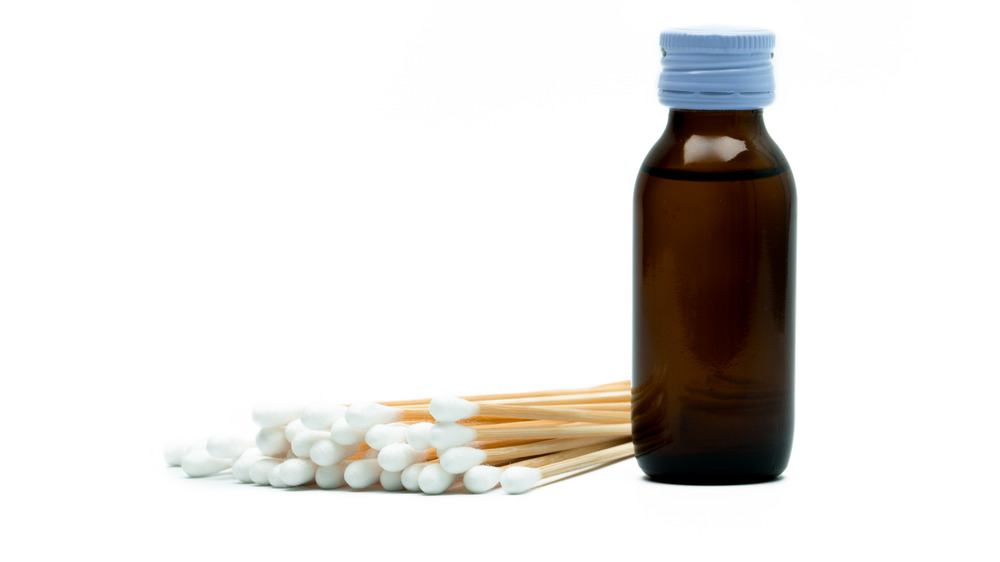
Hydrogen peroxide is likely a common item in your household cleaning supplies or first aid kit. But do you make it a habit to replace your bottle regularly? If not, your hydrogen peroxide might have expired without your knowledge.
The shelf life for a 3 to 7 percent hydrogen peroxide solution bought from a local store is approximately three years for an unopened bottle (via Healthline). However, once opened, the shelf life shrinks significantly to between one to six months. The decomposition rate for a 3 percent hydrogen peroxide solution is estimated at 0.5 percent per year, according to ThoughtCo.
Why does this happen so fast? Essentially, hydrogen peroxide begins to break down into water and oxygen gas when exposed to air or other contaminants like your finger or a swab.
This can be inconvenient when you urgently need your bottle as a disinfectant or stain remover. This brings us to the crucial question you might have while in a pinch — is it safe to use expired hydrogen peroxide?
Can you use expired hydrogen peroxide?

Using hydrogen peroxide past its expiration date isn’t dangerous; however, according to Healthline, its effectiveness diminishes over time. Even an expired, sealed bottle is no longer full-strength hydrogen peroxide. It’s likely just plain water. Nonetheless, caution is advised with expired hydrogen peroxide, as it can cause skin irritation and is poisonous if ingested.
To test if your hydrogen peroxide is still effective, pour some into the sink — if it fizzes or bubbles, it’s still good. No fizz means it’s time to replace your bottle.
To help maintain its effectiveness, store your hydrogen peroxide in a cool, dark place and keep it in its original dark bottle. Avoid opening your bottle until you are ready to use it, or consider buying smaller quantities so you can use it promptly. If your bottle of hydrogen peroxide is expired and ineffective, simply dispose of it.
“`




